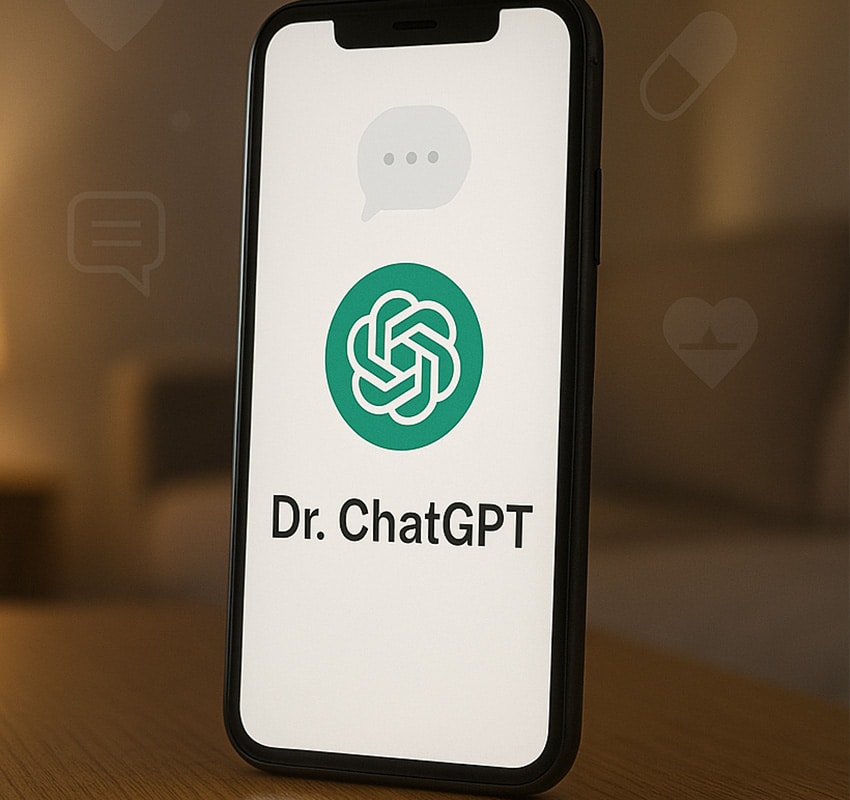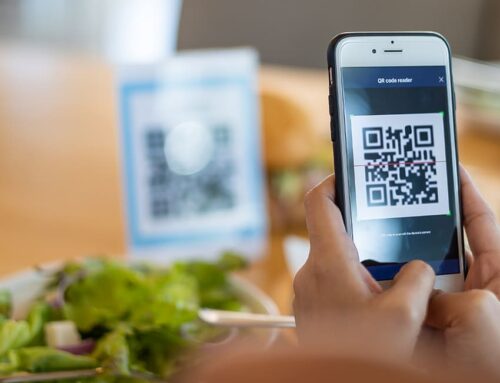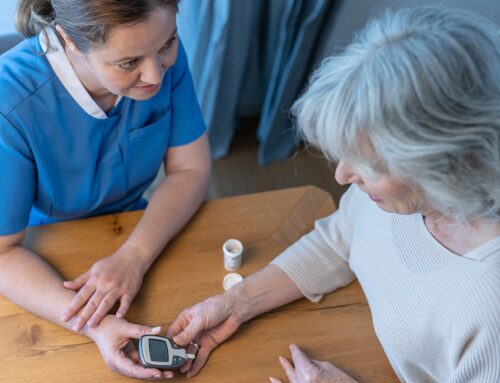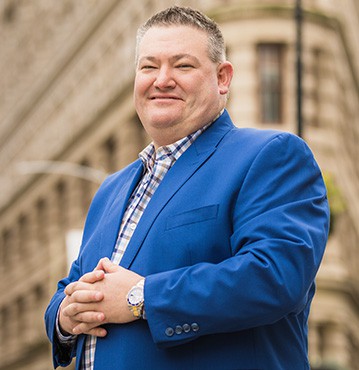Doctor ChatGPT : How AI is Reshaping Health Advice
Doctor ChatGPT is the new shorthand for a growing behavior — turning to artificial intelligence for answers to health questions. People also ask about dietary supplements when consulting Doctor ChatGPT. Whether asking about symptoms, medications, or treatment options, people are now having conversations with AI instead of relying solely on search engines or in person consultations. This shift marks a new phase in how consumers engage with healthcare information, creating both opportunities and challenges for the industry.
In this article, we explore how the rise of Doctor ChatGPT is changing the digital health journey, what it means for advertisers and marketers, and how brands can stay relevant as AI becomes part of the way people make health decisions.
Key Takeaways
- Doctor ChatGPT is a growing behavior where consumers use conversational AI to explore symptoms, treatments, medications, and health concerns like high blood pressure before speaking with a professional.
- There is a major shift away from traditional search engines, as people prefer the speed, tone, and clarity of AI generated health responses.
- This change opens new opportunities for advertisers to reach consumers earlier in their health journey, especially through contextual content and trusted environments.
- While AI can enhance access to health information, it cannot replace clinical expertise, and there are risks tied to misinformation, outdated advice, or overreliance on AI.
- The future of health media will require brands to adapt to how people ask questions, what they trust, and where they go for answers — with a focus on context, education, and responsibility.
What Is “Doctor ChatGPT”?
Much like how Dr Google became a familiar phrase for people searching their symptoms online, Doctor ChatGPT has emerged as the new go-to source for casual, conversational health advice. It is not a certified doctor, a regulated medical tool, or even a single platform, but rather a digital habit that millions of people are forming. They are turning to generative AI tools like ChatGPT with personal health questions — and often expecting meaningful, trustworthy answers in return.
People now ask Doctor ChatGPT about everything from unexplained symptoms and treatment options to side effects and possible drug interactions. Its ability to respond in a friendly, natural way gives it an air of credibility, even though the responses are not medically reviewed or clinically validated. To many users, the experience feels less like typing a search query and more like having a conversation with a knowledgeable friend who just happens to know a lot about healthcare. Specific interactions, such as those involving grapefruit juice and alcohol, are common topics of inquiry, highlighting the need for awareness around food and drink interactions with medications.
The rise of Doctor ChatGPT represents more than just a trend in technology. It signals a shift in how consumers approach their health questions, replacing the static reading of web pages with interactive, AI-guided exploration. Whether users are seeking peace of mind, exploring second opinions, or simply avoiding the wait for a real appointment, AI is increasingly shaping their health journeys.
For health and pharmaceutical advertisers, this change means the consumer journey now begins even earlier — often before search engines, publisher content, or professional medical advice. Understanding how audiences are influenced during these early, AI-driven moments is key to crafting relevant, timely, and effective messaging.
From Dr Google to Dr ChatGPT: The Shift in Consumer Behavior
Every day, billions of health related questions are asked online, but more and more, those questions are being directed to AI assistants like ChatGPT instead of traditional search engines. Consumers are drawn to the speed, simplicity, and natural tone of AI generated responses. For many, the experience feels more personal and less clinical, making the advice not only faster but also more empathetic and easier to understand.
This shift marks a fundamental change in how people explore their health concerns. Instead of scanning long lists of search results or reading through medical articles, users are now engaging in conversational exchanges that feel like real time support. It reflects a deeper demand for accessible and always available guidance, especially among those navigating chronic conditions, mental health challenges, or conflicting treatment options. People with conditions like high blood pressure find AI-generated responses particularly useful.
For marketers, this is not the first change in digital behavior. It closely mirrors earlier transitions like the move from desktop to mobile browsing and the adoption of voice search. In each case, advertisers needed to rethink how and where they connected with audiences. Now, AI driven experiences are creating entirely new starting points in the patient journey — moments that are early, informal, and deeply influential.
As trust in AI tools like ChatGPT continues to grow, health and pharmaceutical brands must evolve their approach. Staying relevant means understanding these new entry points and making sure their messages are present, credible, and helpful at the very beginning of the health decision making process.
How Doctor ChatGPT Works
The rise of Doctor ChatGPT represents a growing behavior — people engaging with generative AI in search of health answers. Instead of typing symptoms into a search engine or reading articles, users now ask direct questions in natural language and receive conversational responses. It is less about using a specific tool and more about how people are adopting AI as part of their personal health discovery process.
This new habit is made possible by advancements in natural language processing, which allow AI to understand the way people really speak — casual, fragmented, and sometimes emotional. When someone asks a question like “Why am I getting headaches at night?” or “Can I take these two medications together?”, the AI responds in a way that feels approachable and human, even when delivering complex information. People often ask if one drug can be taken with other drugs, highlighting concerns about drug interactions and potential risks.
To help guide these interactions, prompt models like CARE have emerged, offering advice on how to ask clearer and more structured questions. While most users are unaware of frameworks like these, the underlying idea is the same — better input often results in better answers.
What keeps this behavior evolving is the constant improvement of responses. In healthcare research, human reviewers have played an important role in assessing AI generated advice. In one analysis of 55 health evaluations, more than two thirds emphasized the importance of human feedback in shaping accuracy and usefulness.
Over time, this feedback loop has made the Doctor ChatGPT experience feel more trustworthy to the average user. People may not know how the underlying models work, but they are increasingly comfortable turning to AI as a first step — and often a repeated step — in their search for health information.
The Accuracy of Doctor ChatGPT – AI Accuracy, Empathy, and the Changing Standard of Advice
The growing habit of turning to Doctor ChatGPT for health advice is not just about convenience. It is about perceived accuracy, emotional tone, and the changing expectations people have when looking for health information. In a recent study from Emory University, AI performed on par with doctors when diagnosing eye related conditions and scored even higher than established tools like symptom checkers on popular medical websites. The AI responses contained no major errors and were often more detailed than the answers doctors provided in similar scenarios.
In blind comparisons, nearly eight out of ten people preferred AI generated responses over those written by human physicians. What stood out was not just the depth of the content but the tone. Users described the AI answers as more understanding and compassionate. This was especially true for female participants, who consistently rated the responses higher in empathy.
For advertisers, this is more than an interesting shift. It shows that people are now judging health information not only by how correct it sounds, but by how it makes them feel. Brands that understand this emotional layer can build stronger engagement, particularly with audiences who want information that is both helpful and human.
The Doctor ChatGPT behavior is not limited to diagnosis. It is showing up in mental health searches, chronic condition management, and general health education. Consumers are using AI to explore conditions, validate symptoms, and weigh their options before taking further steps.
This change in user behavior raises the standard for what content should deliver. It is no longer enough to show up in search results or provide the basics. Health brands need to think about tone, clarity, and usefulness — especially as audiences increasingly trust AI as a first step in their health journey.
Risks, Safety, and the Limits of Generative Health Advice: Dietary Supplements and More
While the growing use of Doctor ChatGPT brings many benefits, it also introduces risks that marketers and healthcare professionals cannot ignore. People are increasingly leaning on AI generated answers for health advice, but those responses may lack the precision, context, or clinical oversight required for sound medical decisions. When applied to serious health concerns, this can lead to confusion, misinformation, or even dangerous outcomes.
Unlike medications or medical procedures, AI systems that provide health advice are not subject to formal regulatory processes. There are no consistent safeguards in place to ensure the information shared is up to date, evidence based, or aligned with current medical standards. In some cases, advice generated by AI may rely on outdated practices or omit important recent discoveries.
Another concern is the potential for AI to produce hallucinated responses — answers that sound authoritative but are not factually accurate. Many users are not equipped to spot these errors, and may take the information at face value. This becomes especially risky when users replace professional medical input with AI responses, assuming the advice is reliable simply because it is well written.
This shift in behavior creates a new layer of responsibility for brands and advertisers. Associating with AI influenced health content requires thoughtful placement and messaging. If a user follows incorrect advice and encounters a negative outcome, the perception of nearby content — including ads — could be affected.
For advertisers focused on building trust and driving positive health outcomes, the safest path is to align with quality. That means surrounding your messaging with reliable health content, verified sources, and environments where consumer wellbeing is clearly a priority. Doctor ChatGPT may be part of the modern health journey, but it is essential to approach it with both optimism and caution.
Doctor ChatGPT and Drug Interaction Checker
One of the most common reasons people are turning to Doctor ChatGPT is to ask questions about medication safety. Many are using conversational AI to check whether it is safe to combine two prescriptions, whether over the counter drugs will interfere with their treatment, or whether a supplement might affect how their medication works. These types of questions, once directed at a pharmacist or physician, are now part of the growing Doctor ChatGPT habit. To avoid drug interactions, it is crucial to consult healthcare professionals and read medication labels carefully.
People want fast, clear answers that help them make informed choices before speaking with a healthcare professional. They are often entering lists of medications, describing symptoms, or explaining what they have taken already. The appeal lies in the simplicity and the privacy of asking without judgment. In some cases, this may help consumers avoid basic errors. But in other cases, it may give them a false sense of reassurance. Certain medications can affect conditions like high blood pressure, so it is important to be cautious and consult healthcare providers.
The challenge is that even well worded answers from AI tools do not replace clinical review. Without access to a patient’s medical history, dosage, or other risk factors, there is always the potential for gaps in advice. A response that sounds accurate might miss something important, especially in cases involving multiple medications or chronic conditions.
For health and pharmaceutical advertisers, this behavior represents an important moment. It is a point where people are actively trying to make safe decisions. Brands that provide helpful, trusted information around medication use can build real value. Whether the focus is on drug education, adherence, or introducing a new therapy, this is a chance to show up early in the decision process.
What Doctor ChatGPT Means for Health Advertisers
Doctor ChatGPT is now a visible part of the digital health journey. People are no longer waiting until they are ready to search specific symptoms or conditions. Instead, they are starting earlier, exploring their concerns through natural language conversations with AI. This behavior is influencing decisions well before traditional search or publisher content comes into play.
For health and pharmaceutical advertisers, this shift requires a change in mindset. Consumer intent is becoming more open ended and conversational. People are asking broad, personal questions rather than typing in clinical terms. This means brands need to focus not just on final conversion moments but on early exploration stages, where trust and guidance carry more weight than product claims.
Messaging must now be built around contextual signals rather than only direct queries. Consumers who engage with AI for advice often go on to validate what they heard by visiting articles, reading trusted content, or searching related questions. This creates an opportunity to meet them in those follow up moments with helpful, well placed advertising.
Understanding the types of questions people ask Doctor ChatGPT can also shape creative strategy. From questions about side effects and treatment comparisons to lifestyle tips and emotional support, the language consumers use in these AI chats reveals what they truly care about. Advertisers who align with those topics can deliver more meaningful engagement.
Contextual advertising plays a critical role in this environment. It allows brands to appear next to content that closely matches the mindset of someone who has just had a health conversation with AI. Rather than chasing intent through data or behavioral targeting, marketers can show up where the right content already exists.
Doctor ChatGPT is changing how people seek and trust health information. Brands that adapt to this behavior — and who deliver value through content, clarity, and care — will be better positioned to build relevance and connection in this new phase of health engagement.
What People Are Using Doctor ChatGPT
Here are 12 of the most common and impactful ways consumers are using AI conversations to explore health topics — often before speaking with a professional or even running a traditional search:
- Drug Interactions – Asking if two medications can be taken together or if timing matters, including interactions with dietary supplements and the risks of drinking alcohol while on medication
- Symptom Checks – Describing how they feel and asking what conditions might match
- Side Effects – Looking up what to expect from a new prescription or over the counter medication
- Mental Health Support – Asking about anxiety, stress, or depression in a private, judgment free setting
- Treatment Comparisons – Weighing one medication or therapy against another based on cost, method, or effectiveness
- Second Opinions – Asking if a diagnosis makes sense or what else it could be
- Health Definitions – Requesting plain language explanations of medical terms or test results
- Chronic Condition Management – Exploring ways to manage conditions like diabetes, asthma, or arthritis
- Diet and Lifestyle Guidance – Asking how food, exercise, or supplements may affect a condition or treatment
- Follow Up Clarification – Reconfirming what a doctor said after an appointment
- Pre Appointment Prep – Getting help preparing questions to ask a specialist or primary care doctor
- Emotional Reassurance – Looking for support when something feels wrong but they are unsure what to do nextReal-world Applications and Collaborations
DR ChatGPT and Drug Interaction Checker
One of the most common reasons people are turning to Doctor ChatGPT is to ask questions about medication safety. Many are using conversational AI to check whether it is safe to combine two prescriptions, whether over the counter drugs will interfere with their treatment, or whether a supplement might affect how their medication works. These types of questions, once directed at a pharmacist or physician, are now part of the growing Doctor ChatGPT habit. To avoid drug interactions, it is crucial to consult healthcare professionals and read medication labels carefully.
People want fast, clear answers that help them make informed choices before speaking with a healthcare professional. They are often entering lists of medications, describing symptoms, or explaining what they have taken already. The appeal lies in the simplicity and the privacy of asking without judgment. In some cases, this may help consumers avoid basic errors. But in other cases, it may give them a false sense of reassurance. Certain medications can affect conditions like high blood pressure, so it is important to be cautious and consult healthcare providers.
The challenge is that even well worded answers from AI tools do not replace clinical review. Without access to a patient’s medical history, dosage, or other risk factors, there is always the potential for gaps in advice. A response that sounds accurate might miss something important, especially in cases involving multiple medications or chronic conditions.
For health and pharmaceutical advertisers, this behavior represents an important moment. It is a point where people are actively trying to make safe decisions. Brands that provide helpful, trusted information around medication use can build real value. Whether the focus is on drug education, adherence, or introducing a new therapy, this is a chance to show up early in the decision process.
DR ChatGPT and Mental Health Support
Mental health is a crucial component of overall well-being, and it’s important to recognize how drug interactions can impact it. Certain medications, especially when combined with herbal supplements, can affect your mental health, leading to increased anxiety, stress, or depression.
Our platform provides robust mental health support features, including access to licensed therapists and counselors. These professionals can help you manage your mental health, offering guidance and support tailored to your needs.
We also offer a range of resources and tools designed to help you manage stress, anxiety, and depression. These tools are particularly valuable if you’re dealing with the effects of drug interactions, providing strategies to cope and maintain your mental health.
Our healthcare providers are equipped to help you identify potential drug interactions that may be affecting your mental health. They can provide guidance on safe medication management, ensuring you avoid combinations that could exacerbate mental health issues.
If you’re experiencing symptoms of a drug interaction, such as increased anxiety or depression, our symptom checker feature can help you identify the potential cause. This tool guides you in seeking medical attention if necessary, ensuring you get the support you need to manage your mental health effectively.
The Future of Doctor ChatGPT and the Evolution of Health Media Strategy
Doctor ChatGPT has quickly become a common behavior in how people explore health questions — a natural next step after years of relying on Dr Google. But this is just the beginning. As artificial intelligence improves and becomes more integrated into everyday life, we can expect to see entirely new websites, platforms, and tools built specifically to support these types of health conversations.
From search engines and voice assistants to apps and smart devices, AI powered interactions will continue to shape how consumers approach health information. People will expect fast, simple answers to complex questions — and they will expect them in natural, human language.
That said, the growing popularity of Doctor ChatGPT should not be mistaken for a replacement for real healthcare professionals. While AI can provide general advice, surface useful explanations, and offer reassurance, it cannot replace the role of a general practitioner, physician, or specialist. Real clinical care requires context, expertise, and human judgement — especially for diagnosis, treatment planning, and follow up.
For advertisers and health communicators, this shift toward conversational discovery requires a new kind of strategy. It means showing up with content that feels relevant to the way people now ask questions — context first, not keyword first. It means understanding the kinds of topics people are exploring through AI, and offering content that adds clarity without oversimplifying. And it means staying grounded in the responsibility that comes with engaging in health related moments.
As AI continues to evolve, media strategies must evolve with it. The future will be defined by contextual content, thoughtful messaging, and a deep respect for the consumer’s search for trustworthy information. Doctor ChatGPT may be where the conversation starts — but what comes next is where brands, publishers, and professionals all have a role to play.








